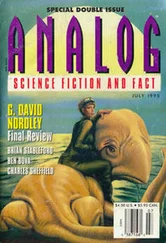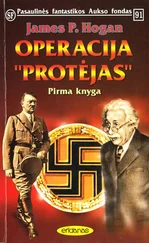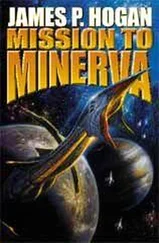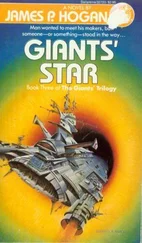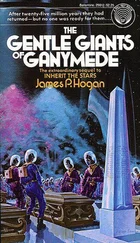James Hogan - Inherit the Stars
Здесь есть возможность читать онлайн «James Hogan - Inherit the Stars» весь текст электронной книги совершенно бесплатно (целиком полную версию без сокращений). В некоторых случаях можно слушать аудио, скачать через торрент в формате fb2 и присутствует краткое содержание. Жанр: Фантастика и фэнтези, на английском языке. Описание произведения, (предисловие) а так же отзывы посетителей доступны на портале библиотеки ЛибКат.
- Название:Inherit the Stars
- Автор:
- Жанр:
- Год:неизвестен
- ISBN:нет данных
- Рейтинг книги:3 / 5. Голосов: 1
-
Избранное:Добавить в избранное
- Отзывы:
-
Ваша оценка:
- 60
- 1
- 2
- 3
- 4
- 5
Inherit the Stars: краткое содержание, описание и аннотация
Предлагаем к чтению аннотацию, описание, краткое содержание или предисловие (зависит от того, что написал сам автор книги «Inherit the Stars»). Если вы не нашли необходимую информацию о книге — напишите в комментариях, мы постараемся отыскать её.
Inherit the Stars — читать онлайн бесплатно полную книгу (весь текст) целиком
Ниже представлен текст книги, разбитый по страницам. Система сохранения места последней прочитанной страницы, позволяет с удобством читать онлайн бесплатно книгу «Inherit the Stars», без необходимости каждый раз заново искать на чём Вы остановились. Поставьте закладку, и сможете в любой момент перейти на страницу, на которой закончили чтение.
Интервал:
Закладка:
Hunt stopped, puzzled. He looked up at the ridge again, then turned to stare at the bright disk of Earth, shining far behind his right shoulder. He turned to look one way, then back again the other.
"Anything wrong?" Alberts, who had continued on a few paces, had turned and was staring back at him.
"I’m not sure. Hang on there a second." Hunt moved up alongside the professor and pointed up and ahead toward the ridge. "You’re more familiar with this place than I am. See that ridge up ahead there-At any time in the year, could the Earth ever appear in a position over the top of it?"
Alberts followed Hunt’s pointing finger, glanced briefly back at the Earth, and shook his head decisively behind his facepiece.
"Never. From the Lunar surface, the position of Earth is almost constant. It does wobble about its mean position a bit as a result of libration, but not by anything near that much." He looked again. "Never anywhere near there. That’s an odd question. Why do you ask?"
"Just something that occurred to me. Doesn’t really matter for now."
Hunt lowered his eyes and saw an opening at the base of one of the walls ahead. "That must be it. Let’s carry on up to it."
The hole was exactly as he remembered from innumerable photographs. Despite its age, the shape betrayed its artificial origin. Hunt approached almost reverently and paused to finger the rock at one side of the opening with his gauntlet. The score marks had obviously been made by something like a drill.
"Well, that’s it," came the voice of Alberts, who was standing a few feet back. "Charlie’s Cave, we call it-more or less exactly as it must have been when he and his companion first saw it. Rather like treading in the sacred chambers of one of the pyramids, isn’t it?"
"That’s one way of putting it." Hunt ducked down to peer inside, pausing to fumble for the flashlight at his belt as the sudden darkness blinded him temporarily.
The rockfall that originally had covered the body had been cleared, and the interior was roomier than he expected. Strange emotions welled inside him as he stared at the spot where, millennia before the first page of history had been written, a huddled figure had painfully scrawled the last page of a story that Hunt had read so recently in an office in Houston, a quarter of a million miles away. He thought of the time that had passed since those events had taken place-of the empires that had grown and fallen, the cities that had crumbled to dust, and the lives that had sparkled briefly and been swallowed into the past-while all that time, unchanging, the secret of these rocks had lain undisturbed. Many minutes passed before Hunt reemerged and straightened up in the dazzling sunlight.
Again he frowned up toward the ridge. Something tantalizing was dancing elusively just beyond the fringes of the thinking portions of his mind, as if from the subconscious shadows that lay below, something insistent was shrieking to be recognized. And then it was gone.
He clipped the flashlight back into position on his belt and walked across to rejoin Alberts, who was studying some rock formations on the opposite wall.
Chapter Twenty
The giant ships that would fly on the fifth manned mission to Jupiter had been under construction in Lunar orbit for over a year. Besides the command ship, six freighters, each capable of carrying thirty thousand tons of supplies and equipment, gradually took shape high above the surface of the Moon. During the final two months before scheduled departure, the floating jumbles of machinery, materials, containers, vehicles, tanks, crates, drums, and a thousand other items of assorted engineering that hung around the ships like enormous Christmas-tree ornaments, were slowly absorbed inside. The Vega surface shuttles, deep-space cruisers, and other craft also destined for the mission began moving in over a period of several weeks to join their respective mother ships. At intervals throughout the last week, the freighters lifted out of Lunar orbit and set course for Jupiter. By the time its passengers and final complement of crew were being ferried up from the Lunar surface, only the command ship was left, hanging alone in the void. As H hour approached, the gaggle of service craft and attendant satellites withdrew and a flock of escorts converged to stand a few miles off, cameras transmitting live via Luna into the World News Grid.
As the final minutes ticked by, a million viewscreens showed the awesome mile-and-a-quarter-long shape drifting almost imperceptibly against the background of stars; the serenity of the spectacle seemed somehow to forewarn of the unimaginable power waiting to be unleashed. Exactly on schedule, the flight-control computers completed their final-countdown-phase checkout, obtained "Go" acknowledgment from the ground control master processor, and activated the main thermonuclear drives in a flash that was visible from Earth.
The Jupiter Five Mission was under way.
For the next fifteen minutes the ship gained speed and altitude through successively higher orbits. Then, shrugging off the restraining pull of Luna with effortless ease, Jupiter Five soared out and away to begin overtaking and marshaling together its flock of freighters, by this time already strung out across a million miles of space. After a while the escorts turned back toward Luna, while on Earth the news screens showed a steadily diminishing point of light, being tracked by the orbiting telescopes. Soon even that had vanished, and only the long-range radars and laser links were left to continue their electronic exchanges across the widening gulf.
Aboard the command ship, Hunt and the other UNSA scientists watched on the wall screen in mess twenty-four as the minutes passed by and Luna contracted into a full disk, partly eclipsing that of Earth beyond. In the days that followed, the two globes waned and fused into a single blob of brilliance, standing out in the heavens to signpost the way they had come. As days turned into weeks, even this shrank to become just another grain of dust among millions until, after about a month, they could pick it out only with difficulty.
Hunt found that it took time to adjust to the idea of living as part of a tiny man-made world, with the cosmos stretching away to infinity on every side and the distance between them and everything that was familiar increasing at more than ten miles every second. Now they depended utterly for survival on the skills of those who had designed and built the ship. The green hills and blue skies of Earth were no longer factors of survival and seemed to shed some of their tangible attributes, almost like the aftermath of a dream that had seemed real. Hunt came to think of reality as a relative quantity-not something absolute that can be left for a while and then returned to. The ship became the only reality; it was the things left behind that ceased, temporarily, to exist.
He spent hours in the viewing domes along the outer hull, slowly coming to terms with the new dimension being added to his existence, gazing out at the only thing left that was familiar: the Sun. He found reassurance in the eternal presence of the Sun, with its limitless flood of life-giving warmth and light. Hunt thought of the first sailors, who had never ventured out of sight of land; they too had needed something familiar to cling to. But before long, men would turn their prow toward the open gulf and plunge into the voids between the galaxies. There would be no Sun to reassure them then, and there would be no stars at all; the galaxies themselves would be just faint spots, scattered all the way to infinity.
What strange new continents were waiting on the other side of those gulfs?
Danchekker was spending one of his relaxation periods in a zero-gravity section of the ship, watching a game of 3-D football being played between two teams of off-duty crew members. The game was based on American-style football and took place inside an enormous sphere of transparent, rubbery plastic. Players hurtled up, down, and in all directions, rebounding off the wall and off each other in a glorious roughhouse directed-vaguely-at getting the ball through two circular goals on opposite sides of the sphere. In reality, the whole thing was just an excuse to let off steam and flex muscles beginning to go soft during the long, monotonous voyage.
Читать дальшеИнтервал:
Закладка:
Похожие книги на «Inherit the Stars»
Представляем Вашему вниманию похожие книги на «Inherit the Stars» списком для выбора. Мы отобрали схожую по названию и смыслу литературу в надежде предоставить читателям больше вариантов отыскать новые, интересные, ещё непрочитанные произведения.
Обсуждение, отзывы о книге «Inherit the Stars» и просто собственные мнения читателей. Оставьте ваши комментарии, напишите, что Вы думаете о произведении, его смысле или главных героях. Укажите что конкретно понравилось, а что нет, и почему Вы так считаете.


![Лаура Бренз - Потомственная ведьма[Inherit the Witch]](/books/79609/laura-brenz-potomstvennaya-vedma-inherit-the-witch-thumb.webp)
